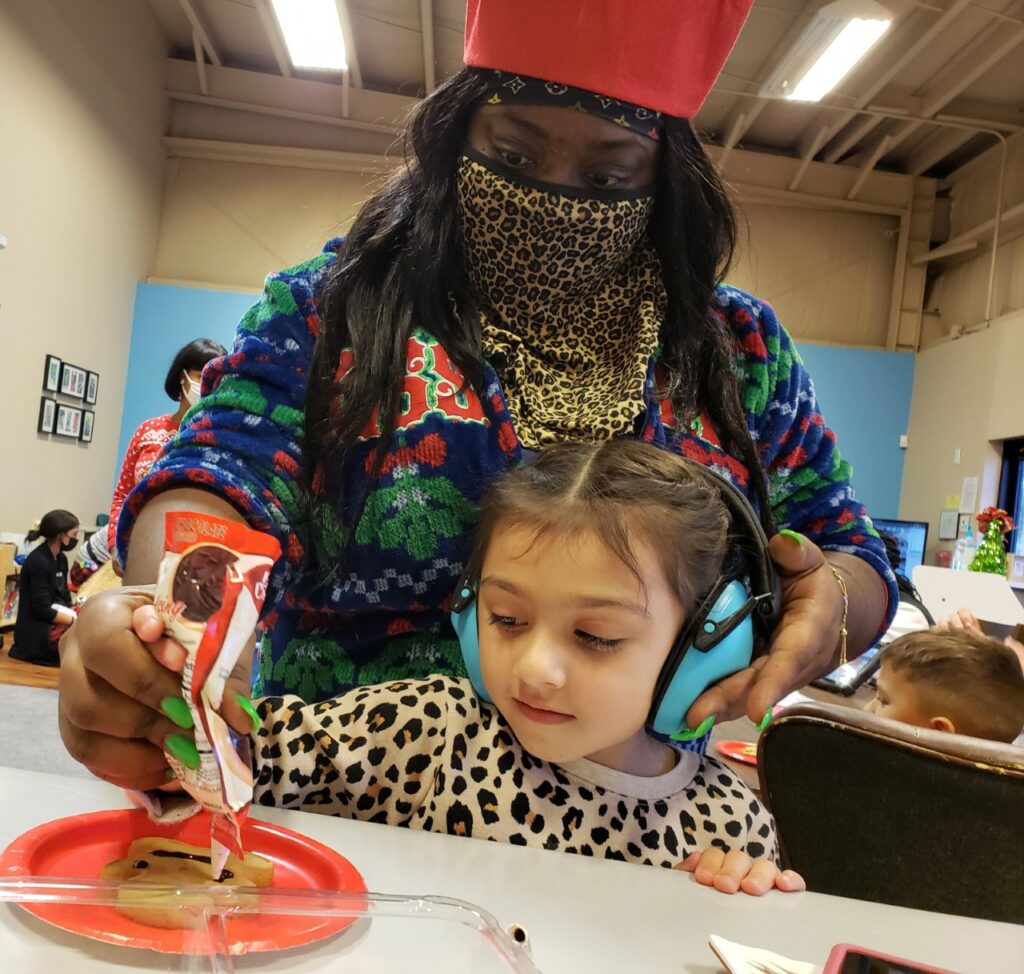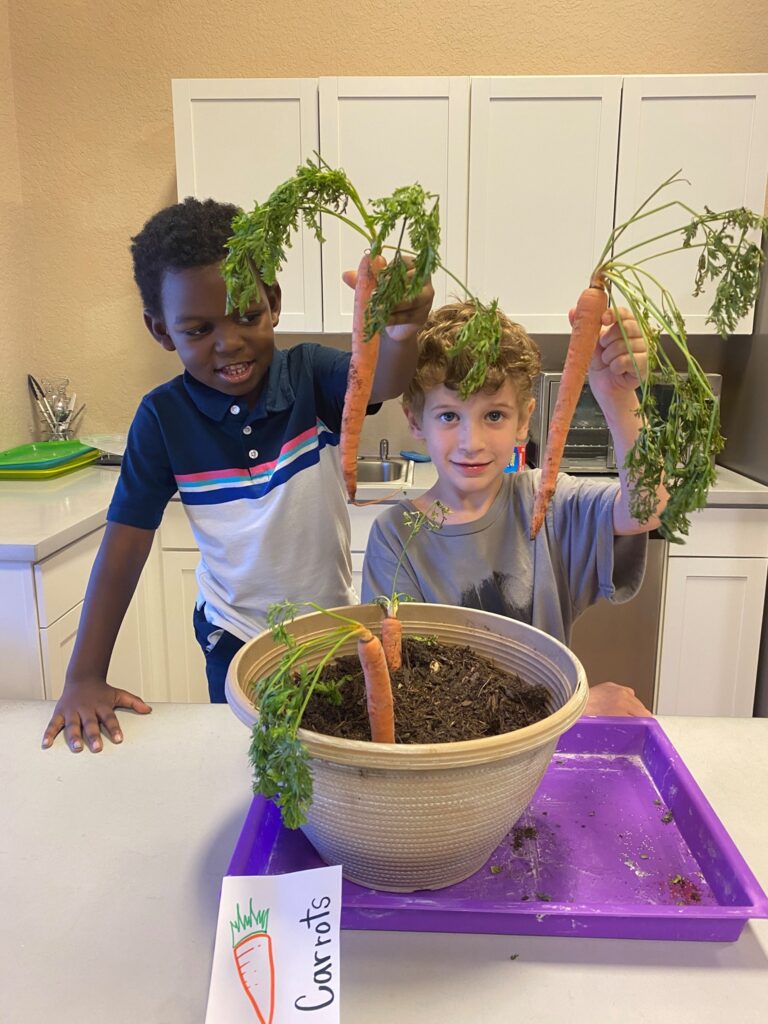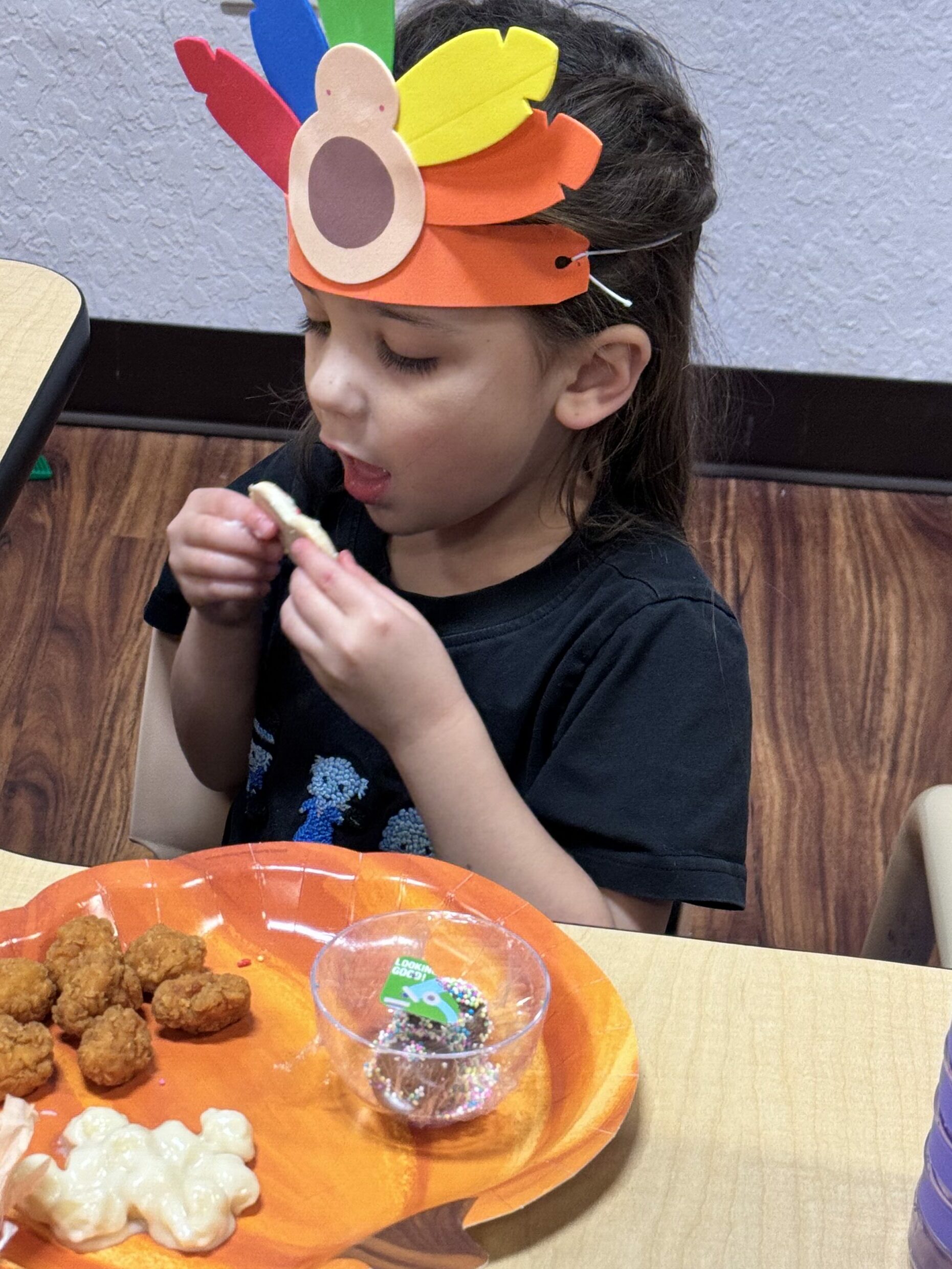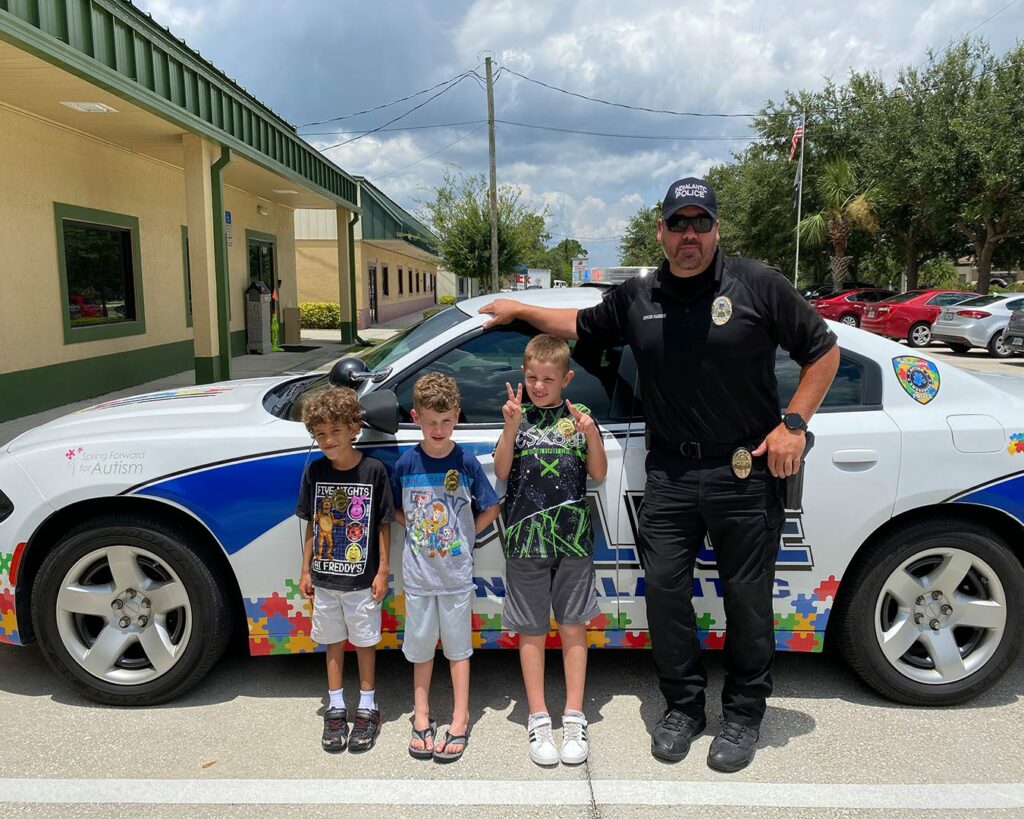Supporting neurodivergent students through community engagement is a transformative initiative that holds the potential to create a more inclusive and understanding society. As we dive into this topic, it is crucial to recognize the unique strengths and perspectives that neurodivergent individuals bring to the table. By fostering a supportive network involving parents, educators, and community leaders, we can cultivate environments where these students thrive both academically and socially. This piece will explore practical strategies and inspirational stories that highlight the power of community involvement in enhancing the well-being and opportunities for neurodivergent students. Join us as we embark on a journey of empowerment, understanding, and collaborative growth.
Introduction to Community Engagement
Why Community Matters
Community plays a pivotal role in the development and well-being of neurodivergent students. When a community comes together to support these individuals, it creates an inclusive environment that fosters acceptance and growth. Communities can provide resources, mentorship, and social opportunities that might not be available through schools alone. By involving parents, educators, local businesses, and civic leaders, a network of support is built, ensuring that neurodivergent students feel valued and understood. Moreover, community engagement helps to break down stereotypes and misconceptions about neurodiversity, promoting empathy and acceptance. This collaborative approach not only enhances the educational and social outcomes for neurodivergent students but also enriches the community as a whole, creating a more inclusive and supportive society for everyone.
Understanding Neurodiversity
Understanding neurodiversity is essential for fostering inclusivity within a community. Neurodiversity refers to the natural variations in the human brain and encompasses conditions such as autism, ADHD, and dyslexia. Recognizing and embracing these differences is crucial for creating environments where neurodivergent individuals can thrive. Each person brings unique perspectives and strengths, which can significantly enrich a community. By educating ourselves and others about neurodiversity, we challenge misconceptions and reduce stigma. This understanding allows for the development of tailored strategies and supports that meet the distinct needs of neurodivergent students. Educators, families, and community members can work together to create effective and compassionate learning environments. Ultimately, understanding neurodiversity fosters a culture of respect and acceptance, paving the way for neurodivergent individuals to flourish both academically and socially.
The Role of Parents and Educators
Parents and educators are crucial allies in supporting neurodivergent students through community engagement. Parents provide invaluable insights into their child’s unique needs and preferences, advocating for accommodations and resources that can enhance their child’s educational experience. They serve as the bridge between home and school, ensuring that their child’s needs are consistently met. Educators, on the other hand, create inclusive classroom environments that celebrate diversity and foster acceptance. By adopting flexible teaching strategies and individualized learning plans, they can cater to the varying needs of neurodivergent students. Collaboration between parents and educators is vital to creating a cohesive support system. Regular communication and cooperation help identify challenges early and develop effective interventions. Together, they can advocate for policies and programs that benefit neurodivergent students, ensuring that these individuals receive the support they need to succeed academically and socially.

Building a Supportive Community
Engaging Local Representatives
Engaging local representatives is a vital step in building a supportive community for neurodivergent students. Local leaders have the influence and resources to implement changes that make communities more inclusive. By raising awareness about the needs of neurodivergent individuals, representatives can champion policies and initiatives that promote accessibility and support. This could include funding for specialized programs, training for educators, or creating inclusive public spaces. Parents, educators, and community members should actively reach out to representatives to discuss pertinent issues and potential solutions. Hosting community forums or meetings provides a platform for dialogue and collaboration, allowing local leaders to hear directly from those affected. When local representatives are informed and involved, they can advocate effectively on behalf of neurodivergent students, ensuring their voices are heard and their needs are prioritized. This collaboration fosters an environment where neurodivergent individuals can thrive, benefiting the community as a whole.
Collaborative School and Parent Efforts
Collaborative efforts between schools and parents are essential in creating a supportive community for neurodivergent students. When schools and families work together, they can develop tailored strategies that address the specific needs of each student. Effective communication is key to this partnership, enabling both parties to share insights and concerns. Regular meetings and open channels for dialogue ensure that any challenges are promptly addressed. Schools can provide resources and training to help parents better support their children at home, while parents can offer valuable feedback on how their children are progressing. Joint initiatives, such as workshops or community events, can further strengthen this collaboration, fostering a sense of unity and shared purpose. By working together, schools and parents can create a nurturing environment that encourages academic achievement and personal growth, ensuring that neurodivergent students have the support they need to succeed.
Advocating for School Board Involvement
Advocating for school board involvement is crucial in enhancing support for neurodivergent students. School boards play a significant role in shaping educational policies and allocating resources, which directly impacts student experiences. By engaging with school board members, parents and educators can raise awareness about the specific needs of neurodivergent students. They can advocate for policies that promote inclusion, such as training for teachers, funding for specialized programs, and the development of inclusive curricula. Attending school board meetings and voicing concerns helps keep neurodivergent issues on the agenda. Additionally, forming alliances with other parents and community advocates can amplify their voices and increase their influence. When school boards are informed and actively involved, they can implement effective strategies that create a more inclusive educational environment. This advocacy ensures that neurodivergent students receive the necessary support to thrive academically and socially, contributing to a more equitable education system.
The Importance of Job Placement
Vocational Programs and Opportunities
Vocational programs and opportunities are vital in preparing neurodivergent students for successful futures in the workforce. These programs provide practical skills and hands-on experience, bridging the gap between education and employment. By participating in vocational training, students gain confidence and competence in various fields, from technology to trades. Tailored programs can focus on the strengths of neurodivergent students, offering them an environment where they can excel. Schools and local businesses can collaborate to create internship opportunities, allowing students to apply their skills in real-world settings. This collaboration can also help in identifying the unique talents of neurodivergent individuals, matching them with suitable roles. Moreover, vocational programs can include job placement services, aiding students in finding employment post-graduation. By investing in vocational opportunities, communities can ensure that neurodivergent students are well-equipped to enter the workforce, fostering independence and contributing to the economy.

Success Stories: Real-Life Examples
Success stories of neurodivergent individuals in the workforce highlight the transformative impact of effective job placement and vocational programs. Consider the story of Alex, a young adult with Asperger’s Syndrome, who found fulfillment in a tech company known for its inclusive hiring practices. With a keen eye for detail and an exceptional ability to focus, Alex excelled in a coding role, outperforming his peers and earning recognition for his contributions. His success was not only a personal achievement but also served as an inspiration, demonstrating the value that neurodivergent individuals bring to the workplace. Similarly, Emma, a high school graduate with ADHD, participated in a vocational training program that led to an internship at a local manufacturing plant. Her enthusiasm and innovative problem-solving skills quickly made her a valuable team member, leading to a full-time position. These stories underscore the importance of providing opportunities and support, proving that with the right environment, neurodivergent individuals can thrive professionally.
The Role of Local Businesses
Local businesses play a critical role in facilitating job placement for neurodivergent individuals. By embracing inclusive hiring practices, businesses can tap into a diverse talent pool that brings unique skills and perspectives. Offering internships and job training programs tailored for neurodivergent individuals allows businesses to discover and nurture talent that might otherwise be overlooked. Furthermore, businesses can collaborate with schools and vocational programs to create pathways for students transitioning from education to employment. This not only benefits the individuals but also enriches the workplace with diverse problem-solving approaches and innovation. Local businesses can also serve as advocates for neurodiversity in the community, promoting awareness and acceptance. By taking an active role in job placement, businesses contribute to a more inclusive society and demonstrate corporate social responsibility. Ultimately, their involvement helps ensure that neurodivergent individuals have equal opportunities to succeed in the workforce and beyond.
Overcoming Challenges Together
Addressing Misconceptions
Addressing misconceptions about neurodiversity is vital for building an inclusive and supportive community. Common stereotypes often portray neurodivergent individuals as less capable or challenging to work with, which can lead to unfair treatment and missed opportunities. Educating the public about the reality of neurodiversity helps dispel these myths. Neurodivergent individuals have varied strengths and can excel in a range of fields when given the right support. For example, many people with autism possess exceptional attention to detail and problem-solving abilities. To address misconceptions, communities can host workshops, seminars, and open discussions that offer accurate information and personal stories. Employers can lead by example, sharing success stories of neurodivergent employees and the value they add to their teams. By collectively challenging and changing perceptions, we foster a culture of understanding and acceptance. This approach ensures that neurodivergent individuals are recognized for their potential and contributions, rather than being defined by outdated stereotypes.
Providing Continuous Support
Providing continuous support is essential in ensuring the long-term success of neurodivergent students. Support should not end once a student graduates or enters the workforce; it needs to be ongoing and adaptive to their evolving needs. This can include regular check-ins with mentors or coaches, access to resources like counseling or skill development workshops, and a supportive network of peers and professionals. Schools and employers can establish support systems that encourage open communication and provide feedback, helping neurodivergent individuals navigate challenges as they arise. Community organizations can also play a role by offering programs that enhance social connections and personal growth. By maintaining a supportive environment, we help neurodivergent individuals build resilience, confidence, and independence. Continuous support acknowledges that development is a lifelong process and that everyone’s journey is unique. This commitment ensures that neurodivergent individuals have the tools and encouragement needed to thrive at every stage of life.
Empowering Parents and Caregivers
Empowering parents and caregivers is crucial for overcoming challenges faced by neurodivergent students. Parents and caregivers are often the primary advocates and support system for these individuals. Providing them with the right tools and knowledge enables them to better support their children’s unique needs. Workshops and training sessions can equip parents with strategies to manage daily challenges and foster their child’s development. Networking opportunities with other families can also create a supportive community where experiences and advice are shared. Empowered parents can advocate for appropriate services and resources within educational settings, ensuring their children receive the best possible support. Additionally, mental health resources and counseling services can help caregivers manage stress and balance their roles. By empowering parents and caregivers, we not only enhance their capacity to assist their children but also strengthen the overall network of support around neurodivergent individuals, fostering an environment where they can thrive.
Practical Steps for Community Engagement
How to Get Involved
Getting involved in supporting neurodivergent students begins with understanding their needs and the resources available. Start by attending local workshops or seminars on neurodiversity to gain insights and practical knowledge. Volunteering with organizations that support neurodivergent individuals can also provide hands-on experience and help strengthen community ties. Schools often welcome volunteers to assist with inclusive programs, offering a chance to engage directly with students. Joining or forming parent support groups creates a network of shared experiences and advocacy efforts. Engaging with school boards and local representatives can amplify your voice in promoting inclusive policies and practices. Businesses can participate by creating internship opportunities or sponsoring events that raise awareness about neurodiversity. Ultimately, involvement can be as simple as fostering an inclusive attitude in daily interactions, advocating for understanding and acceptance in your community. By taking these steps, you contribute to a supportive environment where neurodivergent students can thrive.
Effective Communication Strategies
Effective communication strategies are essential when engaging with neurodivergent students and their communities. Clear, concise, and respectful dialogue can significantly enhance understanding and cooperation. Start by actively listening to the needs and preferences of neurodivergent individuals, acknowledging their unique perspectives. Visual aids, such as charts or diagrams, can be particularly helpful for conveying information in an accessible manner. Consistency in language and routine can reduce anxiety and foster a sense of security. It’s also beneficial to use positive reinforcement, highlighting strengths and achievements to build confidence. For educators and community leaders, training in communication techniques tailored to neurodivergent individuals can be invaluable. Regular feedback sessions and open forums encourage ongoing dialogue and adaptation to changing needs. By employing these strategies, we create an environment that is inclusive and supportive, enabling neurodivergent students to express themselves freely and engage fully with their communities.
Leveraging Community Resources

Leveraging community resources is a vital step in supporting neurodivergent students effectively. Communities often have a wealth of resources, including specialized services, support groups, and educational programs designed to meet the needs of neurodivergent individuals. Families and educators can access these resources to enhance learning and development opportunities. Libraries and community centers may offer workshops or informational sessions on neurodiversity, providing valuable learning experiences for everyone involved. Local businesses can contribute by sponsoring events or offering internships that promote inclusivity. Collaboration with healthcare providers and therapists can provide additional support tailored to individual needs. Schools can partner with local organizations to create comprehensive support networks, ensuring students receive consistent and holistic care. By tapping into these resources, communities can create an environment where neurodivergent students are empowered and included. This collective effort not only benefits the individuals but strengthens the community as a whole, fostering a culture of acceptance and growth.
Conclusion: A Unified Effort
Celebrating Successes

Celebrating successes is an essential part of fostering a supportive environment for neurodivergent students. Recognizing achievements, both big and small, validates the efforts of these individuals and reinforces their confidence and determination. Celebrations can take many forms, such as school assemblies, community events, or personalized recognition in classrooms. Such acknowledgments not only highlight individual accomplishments but also educate the broader community about the capabilities and contributions of neurodivergent individuals. By sharing success stories, we inspire others and promote a culture of encouragement and acceptance. Additionally, celebrating milestones provides an opportunity to reflect on the collective efforts of families, educators, and community members, strengthening the commitment to ongoing support. By focusing on achievements, we shift the narrative from challenges to possibilities, creating a positive and empowering atmosphere. Ultimately, celebrating successes fosters a sense of belonging and unity, encouraging everyone to continue working together towards a more inclusive society.
The Future of Neurodivergent Support
The future of neurodivergent support promises a more inclusive and dynamic approach to education and community engagement. As awareness of neurodiversity grows, so does the commitment to developing innovative strategies and resources tailored to meet the unique needs of neurodivergent individuals. Technological advancements are playing a significant role, providing tools that enhance communication, learning, and social interaction. Virtual reality and AI-driven platforms offer personalized learning experiences, adapting to each student’s pace and style. Communities are increasingly embracing inclusive practices, with businesses, schools, and local organizations collaborating to create supportive environments. The focus is shifting towards strength-based approaches, recognizing the unique talents and potential of neurodivergent individuals. Future efforts will likely emphasize comprehensive support systems that span education, employment, and social integration, ensuring continuity and cohesion. By fostering a culture of acceptance and innovation, we pave the way for a future where neurodivergent individuals are empowered to thrive and contribute significantly to society.
Inspiring Others to Take Action
Inspiring others to take action is crucial for building momentum in supporting neurodivergent students. Sharing stories of success and positive outcomes can motivate parents, educators, and community members to get involved. Highlighting the tangible benefits of inclusive practices, such as improved academic performance and social integration, can drive home the importance of collective effort. Hosting community events, workshops, and seminars on neurodiversity can provide valuable information and encourage active participation. Social media platforms and local media outlets can be leveraged to spread awareness and showcase the impact of community engagement. Additionally, recognizing and celebrating the contributions of volunteers and advocates can inspire others to join the cause. By creating a culture of action and involvement, we ensure that more people are motivated to contribute their time and resources. This collective effort not only supports neurodivergent students but also strengthens the entire community, fostering a more inclusive and understanding society.

